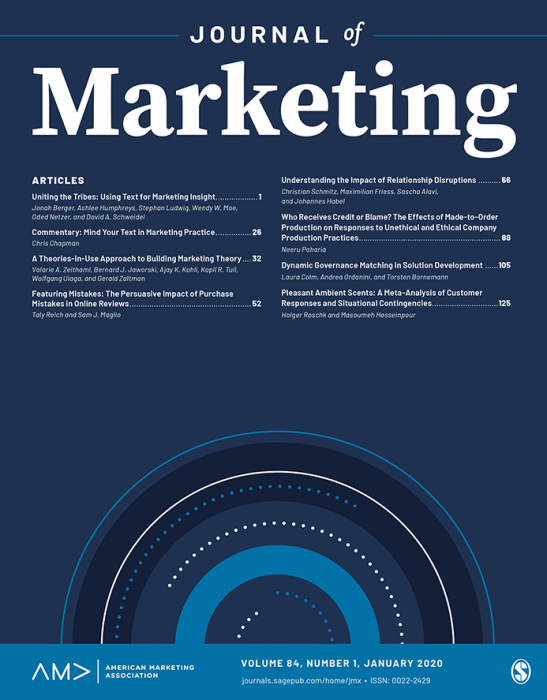快讯较低的人工智能素养预示着更高的人工智能接受度
IF 10.4
1区 管理学
Q1 BUSINESS
引用次数: 0
摘要
随着人工智能(AI)改变社会,了解影响人工智能接受度的因素变得越来越重要。目前的研究调查了哪些类型的消费者更容易接受人工智能。与四项调查显示的预期相反,跨国数据和另外六项研究发现,人工智能素养较低的人通常更容易接受人工智能。对人工智能能力、道德性或可能对人类造成的影响的看法不同,并不能解释这种低认知度与高接受度之间的联系。相反,之所以会出现这种联系,是因为人工智能素养较低的人更有可能认为人工智能是神奇的,并在人工智能执行那些似乎需要人类独特属性的任务时产生敬畏感。与这一理论相一致的是,较低的人工智能素养与较高的接受能力之间的联系是由认为人工智能具有魔力的观念所中介的,并在不需要人类独特属性的任务中得到调节。这些研究结果表明,企业可以将其营销努力和产品开发转向人工智能素养较低的消费者,从而从中获益。此外,努力揭开人工智能的神秘面纱可能会无意中降低其吸引力,这表明保持人工智能的魔力光环可能有利于人工智能的采用。本文章由计算机程序翻译,如有差异,请以英文原文为准。
EXPRESS: Lower Artificial Intelligence Literacy Predicts Greater AI Receptivity
As artificial intelligence (AI) transforms society, understanding factors that influence AI receptivity is increasingly important. The current research investigates which types of consumers have greater AI receptivity. Contrary to expectations revealed in four surveys, cross country data and six additional studies find that people with lower AI literacy are typically more receptive to AI. This lower literacy-greater receptivity link is not explained by differences in perceptions of AI’s capability, ethicality, or feared impact on humanity. Instead, this link occurs because people with lower AI literacy are more likely to perceive AI as magical and experience feelings of awe in the face of AI’s execution of tasks that seem to require uniquely human attributes. In line with this theorizing, the lower literacy-higher receptivity link is mediated by perceptions of AI as magical and is moderated among tasks not assumed to require distinctly human attributes. These findings suggest that companies may benefit from shifting their marketing efforts and product development towards consumers with lower AI literacy. Additionally, efforts to demystify AI may inadvertently reduce its appeal, indicating that maintaining an aura of magic around AI could be beneficial for adoption.
求助全文
通过发布文献求助,成功后即可免费获取论文全文。
去求助
来源期刊

Journal of Marketing
BUSINESS-
CiteScore
24.10
自引率
5.40%
发文量
49
期刊介绍:
Founded in 1936,the Journal of Marketing (JM) serves as a premier outlet for substantive research in marketing. JM is dedicated to developing and disseminating knowledge about real-world marketing questions, catering to scholars, educators, managers, policy makers, consumers, and other global societal stakeholders. Over the years,JM has played a crucial role in shaping the content and boundaries of the marketing discipline.
 求助内容:
求助内容: 应助结果提醒方式:
应助结果提醒方式:


